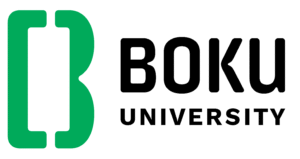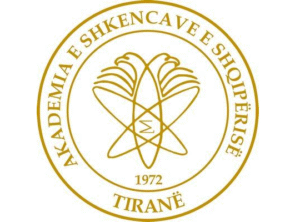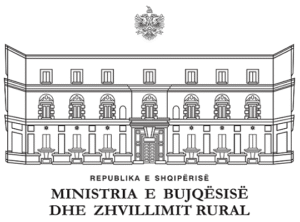Organizers and Partners 1
This section highlights the institutions and organizations that play a vital role in the planning, execution, and support of the conference. From academic leadership to strategic collaboration and financial sponsorship, the “Organizers and Partners” page recognizes the contributions of all entities involved in making this event possible. It serves both to inform participants about the key stakeholders behind the conference, and to promote transparency, trust, and recognition of their support.
Organizers

Agricultural University of Tirana
The Higher Agricultural Institute (HAI) was established on November 1, 1951, just seven years after the end of the Second World War, at a time when Albania had only recently reasserted its sovereignty—albeit as part of the communist bloc. First lectures on agricultural sciences were delivered at the Faculty of Agronomy in 1951.
Co-organizers

BOKU University
The University of Natural Resources and Life Sciences, Vienna, or simply BOKU (derived from its German name, Universität für Bodenkultur Wien), founded in 1872, is an education and research centre for renewable resources in Vienna, Austria. BOKU combines expertise in the fields of natural sciences, engineering, biotechnology, and social and economic sciences. In research and teaching, it focuses on:
- – the conservation and development of protection for habitats, economy, and living standards
- – the management of natural resources and environment
- – the protection of food and health
BOKU sees itself as an innovation leader in the green economy, with the goal of integrating sustainability into all processes in society. It is a member of the Euroleague for Life Sciences (ELLS), the United Nations Academic Impact (UNAI), the European University Initiative (EPICUR), the Austrian-African Research Network (Africa UniNet), and numerous other international cooperations. There are currently 10,941 students from over 100 countries enrolled at BOKU.
Campus: After 27 years at Palais Schönborn, the City of Vienna decided in 1896 to build a new campus at Türkenschanzpark in the 18th district. The departments of sustainable agriculture, soil science, horticulture, animal husbandry, economics, and social sciences are still headquartered at this original campus. Another city campus, located at Muthgasse in the 19th district near the Heiligenstadt underground station, is the headquarters for the biotechnology, chemistry, plant sciences, water resource management, waste management, and food sciences departments. There is also a research facility complex in Tulln, north of the city, with biotechnology and agricultural sciences laboratories and facilities. Other important locations and testing fields are Groß-Enzersdorf (Lower Austria), Jedlersdorf (Vienna), Knödelhütte (Vienna), Heuberg/Rosalia (Burgenland), and the Water Cluster Lunz am See (Lower Austria).

Academy of Sciences of Albania
The Academy of Sciences of Albania, founded in 1972, is the most important scientific institution in Albania. In the 1980s, several research institutes that began at the University of Tirana were transferred to the Academy’s jurisdiction. The institution includes the most distinguished scientists, also called “academics,” that are involved in research centres and other organisations inside and outside Albania. As of 2009, the Academy had 23 regular members, 10 associated members, one permanent member, and 26 honour members.
The Academy was among several dozens of the world’s scientific academies which endorsed through signature the Summit Statement emerging from the New Delhi Population Summit of 1994.
The Academy is composed of two sections:
- – Social Sciences and Albanological Section
- – Natural and Technical Sciences Section
It also includes the following units:
- – Projects of Technological and Innovation Development
- – Branch for Foreign and Public Relations
- – Library
- – Publishing
The Academy of Sciences of Albania has the country’s largest academic library. Founded in 1975 starting with 10,000 volumes, it included 812,000 volumes by 1986.
In 2008, funding for most research functions of the academy was withdrawn, and those research functions were subsequently transferred to universities and research centres. Four research institutes that were separated from the Academy joined to form the Centre of Albanological Studies.
Partners
Ministry of Agriculture and Rural Development
Ministry of Agriculture and Rural Development,
